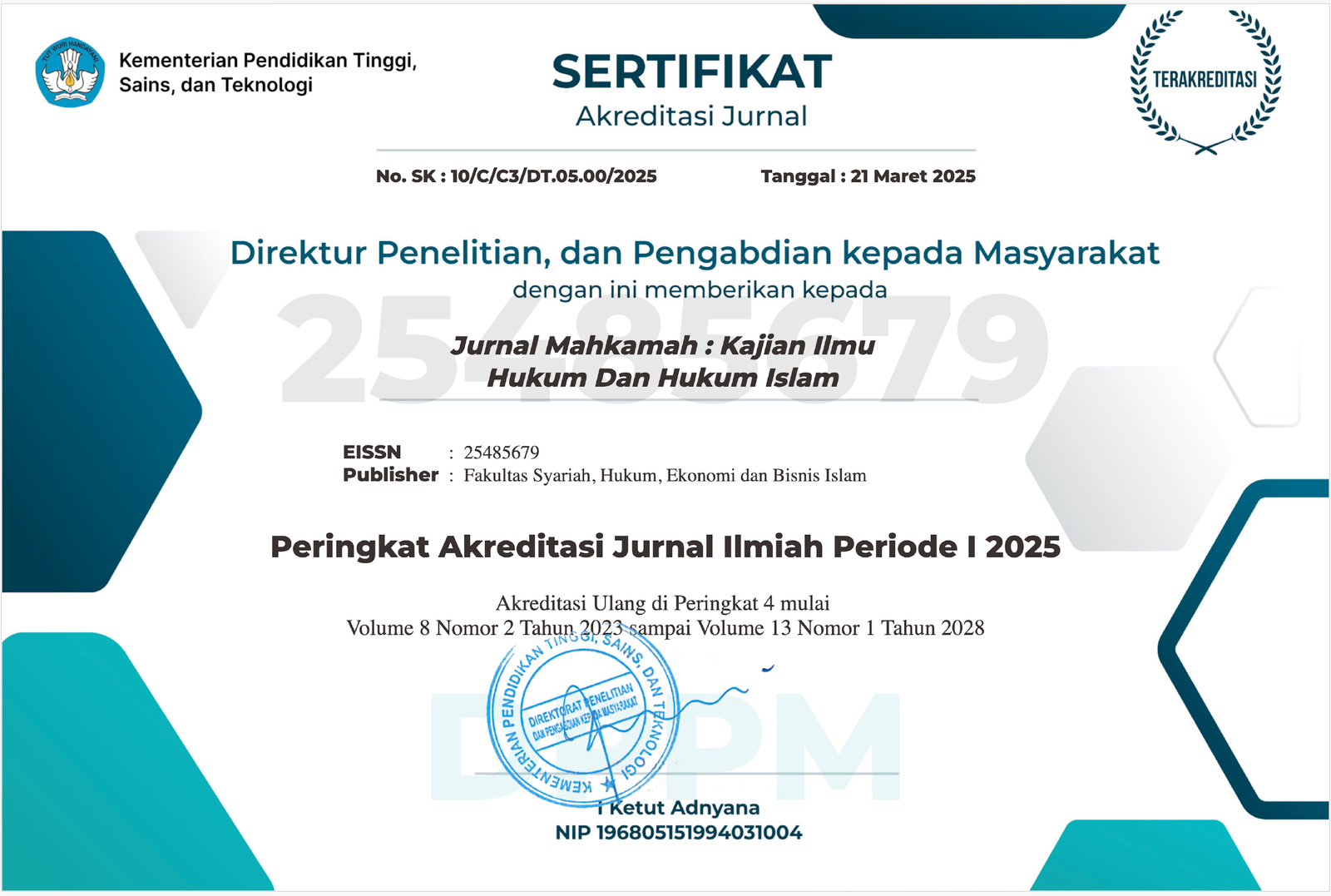The Establishment Village Regulation of Problematic in West Sulawesi Province Reviewed from a Sociology of Law Perspective
DOI:
https://doi.org/10.25217/jm.v8i2.4207Keywords:
Establishment of Village Regulations of Problematic; Sociology of Law PerspectiveAbstract
The establishment of village regulations in West Sulawesi Province creates problems, especially in sociology of law perspective because it is closely related to the lives of village communities which were regulated in a village regulations betweens: 1) The lack of knowledge of village government officials in the establishment of village regulations. 2) The village regulations drafts were not socialized by village government officials regarding asking for input from the communities until it was passed into a village regulation. 3) The village regulations cannot be implemented. The problems formulation includes: 1) How is the relationship betweens the establishment legislation of principles with the establishment of village regulations in sociology of law perspective? 2) How is forms of problems arise in the establishment of village regulations in West Sulawesi Province were reviewed from a sociology of law perspective? The type of research was sociolegal research. The results show that’s: 1) The relationship betweens the establishment legislation of principles with the establishment of village regulations in sociology of law perspective can be seen in efforts to uphold internal sociological values of establishment legislation of principles. 2) Forms of problems arise in the establishment of village regulations on West Sulawesi Province were viewed from a sociology of law perspective betweens: a) The type, hierarchy and content of village regulations were not appropriate. b) Cannot be implemented. c) The formulation was not clear. d) Don’t open.
References
Ashshiddiqi, Muhammad Hasbi, Farhan Caesariasyahid, Yuwono Putra, Rosinda Tata Nurmaya, and Yana Indawati. (2023). “Pembentukan Peraturan Desa Dongko Dalam Efisiensi Penggunaan Tanah Warga Sebagai Tempat Wisata” 1 (2).
Benuf, Kornelius, Siti Mahmudah, and Ery Agus Priyono. (2019). “Perlindungan Hukum Terhadap Keamanan Data Konsumen Financial Technology di Indonesia.” Refleksi Hukum: Jurnal Ilmu Hukum 3 (2): 145–60. https://doi.org/10.24246/jrh.2019.v3.i2.p145-160.
Julyano, Mario, and Aditya Yuli Sulistyawan. (2019). “Nomor 01.” Jurnal Crepido. Vol. 01. https://ejournal2.undip.ac.id/index.php/crepido/.
Kaharuddin, Kaharuddin, Sofwan Sofwan, and Haeruman Jayadi. (2020). “Pendampingan Pembentukan Peraturan Desa di Desa Gelangsar Kecamatan Lingsar Kabupaten Lombok Barat.” Journal Kompilasi Hukum 5 (2): 299–306. https://doi.org/10.29303/jkh.v5i2.50.
Mar’ah, Geges Idhiana, Rosi Malinda, and Shelly Dwi Pramesta. (2022). “Partisipasi Masyarakat Dalam Penyusunan Peraturan Desa di Indonesia.” Verfassung: Jurnal Hukum Tata Negara 1 (1): 33–46. https://doi.org/10.30762/vjhtn.v1i1.159.
Rahmi, Elita, Hartarti Hartarti, and Fitria Fitria. (2023). “Peraturan Desa Dan Otonomi Desa Potret di Kecamatan Pemayung Jambi.” Wajah Hukum 7 (1): 92. https://doi.org/10.33087/wjh.v7i1.1133.
Rosidin, Utang. (2019). “Jurnal Bina Mulia Hukum Partisipasi Masyarakat Desa Dalam Proses Pembentukan Peraturan Desa yang Aspiratif.” https://doi.org/10.23920/jbmh.v4n1.10.
Timotius, Richard. (2018). “Revitalisasi Desa Dalam Konstelasi Desentralisasi Menurut Undang-Undang Nomor 6 Tahun 2014 Tentang Desa.” Jurnal Hukum & Pembangunan 48 (2): 323. https://doi.org/10.21143/jhp.vol48.no2.1666.
Widayati. (2020). “Implementasi Asas Hukum dalam Pembentukan Peraturan Perundang-Undangan Yang Partisipatif Dan Berkeadilan.” Jurnal Hukum Unissula 36 (2): 59–72. https://doi.org/10.26532/jh.v36i2.11391.
Downloads
Published
How to Cite
Issue
Section
License
Copyright (c) 2023 Putera Astomo Astomo, M. Tasbir Rais

This work is licensed under a Creative Commons Attribution-ShareAlike 4.0 International License.
This work is licensed under a Creative Commons Attribution-ShareAlike 4.0 International License.
Authors retain copyright and grant the Jurnal Mahkamah : Kajian Ilmu Hukum Dan Hukum Islam right of first publication with the work simultaneously licensed under a Creative Commons Attribution License (CC BY-SA 4.0) that allows others to share (copy and redistribute the material in any medium or format) and adapt (remix, transform, and build upon the material) the work for any purpose, even commercially with an acknowledgment of the work's authorship and initial publication in Jurnal Mahkamah : Kajian Ilmu Hukum Dan Hukum Islam.
Authors are able to enter into separate, additional contractual arrangements for the non-exclusive distribution of the journal's published version of the work (e.g., post it to an institutional repository or publish it in a book), with an acknowledgment of its initial publication in Jurnal Mahkamah : Kajian Ilmu Hukum Dan Hukum Islam.
Authors are permitted and encouraged to post their work online (e.g., in institutional repositories or on their website) prior to and during the submission process, as it can lead to productive exchanges, as well as earlier and greater citation of published work (See The Effect of Open Access).









